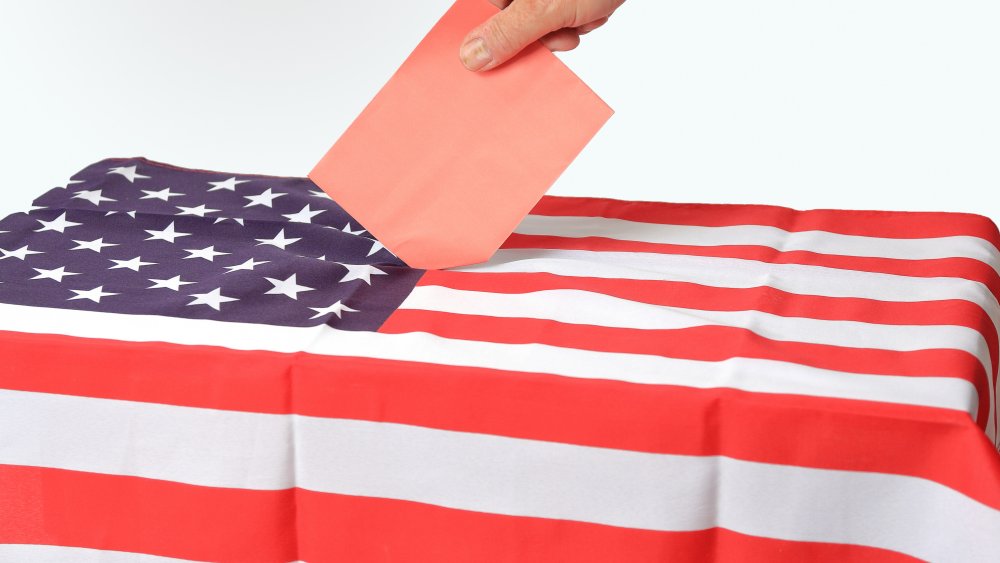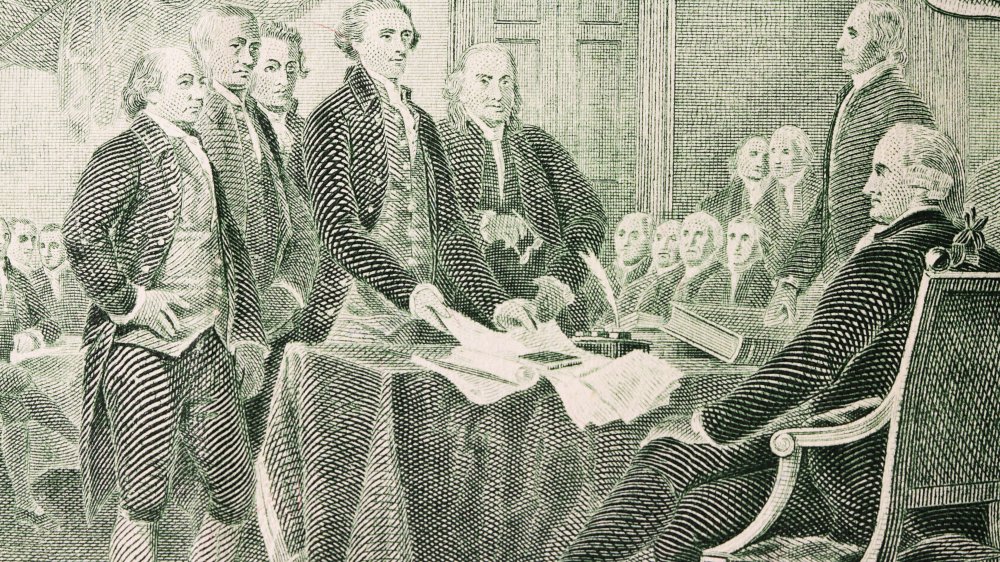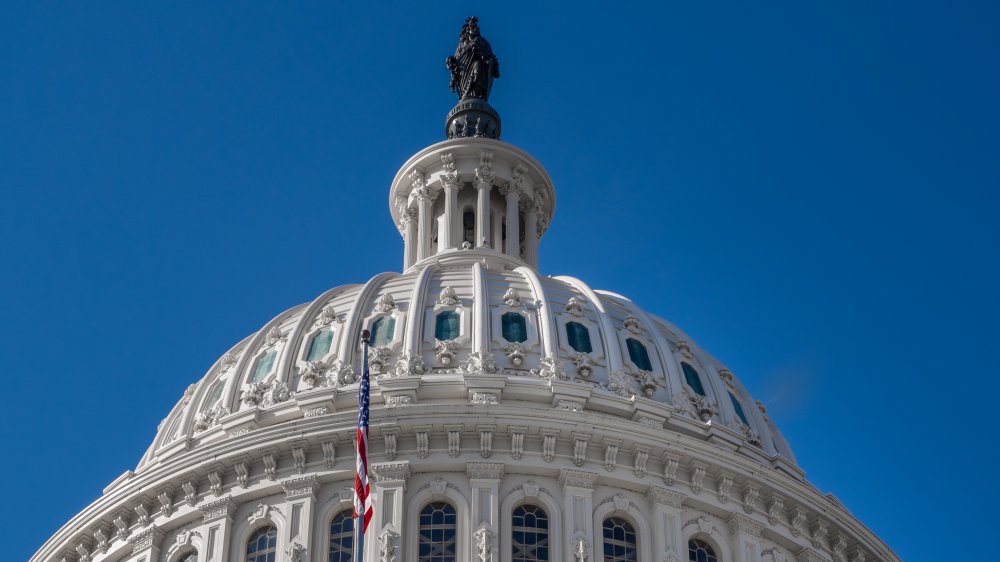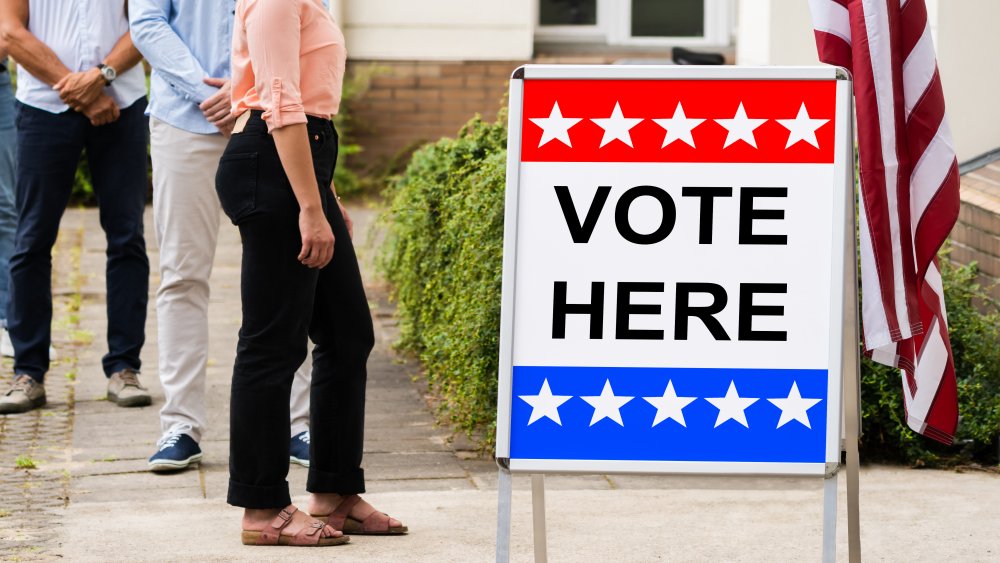Here's What You Need To Know About The Electoral College
American presidential elections are unique in the world. Instead of relying on the popular vote, the president is decided by the Electoral College. If you follow American politics, you've likely heard of it, but what is exactly is the Electoral College?
The Electoral College is a body of people who elect the president and vice-president. But it isn't as simple as that. The electors represent the choice of the majority of their state — whoever wins the popular vote in their state. To put it simply, when you vote on November 3, you're voting for your candidate's electoral representatives, explains the website of the US House of Representatives.
There are 538 Electoral College members, described the National Conference of State Legislators, but a candidate only needs 270 of those votes to be declared president. Each state has a set number of delegates to the Electoral College, based on the representatives in both the House and the Senate, plus three additional for the District of Columbia. Since not all states have the same number of representatives, states like California and Texas have more delegates than Alaska and Montana. The states with the most number of Electoral College votes are California, Texas, Florida, and New York. Those with the least are Alaska, Delaware, the District of Columbia, Montana, North and South Dakota, Vermont.
Why does it exist at all?
When the United States was still a baby country, the Founding Fathers didn't want the next leader chosen by the general public. They were uncomfortable with the idea of allowing people who don't understand governing to select the president. Alexander Hamilton framed it this way in The Federalist Papers, No. 68 (posted at Yale Law School): while it's good for the public to pick their leader, it's better if the decision "should be made by men most capable of analyzing the qualities adapted to the station." He also said a less direct way of voting prevents corruption and cronyism.
The Atlantic also pointed out the formation of the Electoral College empowered states that allowed slavery to withhold the right to vote from enslaved populations. Even President James Madison acknowledged that in Southern states, the right to vote is more complicated.
And so, the Electoral College was enshrined in the US Constitution. The number of electors, of course, changed as the country added more states to the union. The college mainly meets on January 6, following the elections, to officially vote for president and vice-president.
Not everyone votes the same
The public already knows who won the next day. How is that possible? Because electors generally vote the way people in the state vote. If, say, a candidate wins the popular vote in Florida, the people going to the Electoral College will vote for him, and he gets Florida's 35 votes. That's why the media can call someone the winner of the election based only on the states they win, even before the Electoral College meets. (Hillary Clinton, who lost the Electoral College vote but won the popular vote in 2016, said she is an elector for the Democratic candidate in New York, reported CNN.)
There have been some instances when electors broke ranks and voted for someone else, said the House of Representatives. These are called faithless electors, and there's been one in 1948, 1956, 1960, 1968, 1972, and 1988. In 2016, seven electors broke with their state on the presidential ballot. Members of Congress can also object to the Electoral College's votes, though this is rare. It's happened only twice: in 1969 and 2005.
Some people want to abolish it
The Electoral College can be confusing, and for many people, it is. It might seem like a relic of a bygone era when the population was still small and by and large, people were uneducated. The closest the government has ever come to amending it was in 1969, but the resolution didn't pass the Senate.
Calls to abolish the Electoral College have grown as candidates continue to lose the election despite winning the popular vote. Vox wrote the Electoral College is anti-democratic, does not represent the country's diversity, and over-represents states with smaller populations at the expense of those states with more people. In small states like Wyoming, this means a vote for every 193,000 people, but, for California, that's one vote for every 718,000 people.
It's highly unlikely the Electoral College will be abolished anytime soon. But, it's important to remember its power come November 3.



